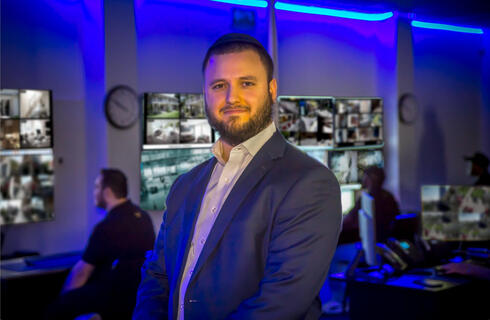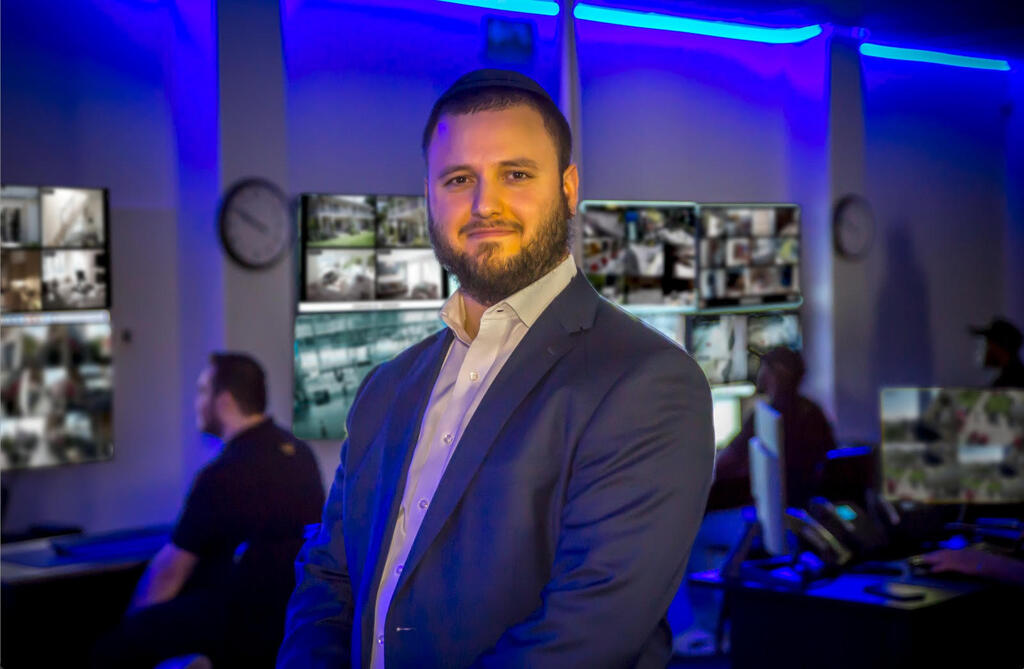
Gen-Z New York rabbi tackles rising antisemitism with AI security startup
US Virtual Guard brings security solutions to synagogues, community centers, and Jewish businesses across the United States.
Rabbi Yossi Eliav, the director of Chabad of Clinton Hill and Pratt and Gen-Zer, has established a security startup that combines proprietary AI software with advanced human monitoring protocols to provide synagogues and other Jewish institutions with additional safety amid rising levels of antisemitism in the United States.
Based on his experience in commercial real estate and as a rabbi on an American college campus, US Virtual Guard combines technology and human eyes by having trained security professionals monitor camera feeds constantly in real time. This surveillance is augmented by computer vision algorithms that analyze footage to alert for potential threats. When suspicious activity is confirmed, the professionals then coordinate an appropriate response, including contacting local authorities.
"Over the past year, dozens of rabbis from around the world have called me saying that their security systems are not equipped to deal with the threats they're facing," said Rabbi Eliav, founder of US Virtual Guard. "Congregants, clergy and organizational leaders want to know that their community spaces are protected, and our solutions have been developed specifically for them."
Jewish spaces across the United States and some countries in Europe have been targeted in antisemitic attacks following the outbreak of the Israel-Gaza war. According to the FBI, anti-Jewish hate crimes have increased by 63% since 2023. An AJC report from 2024 adds that more than three-quarters (77%) of American Jews claim they feel less safe as a Jewish person in the U.S. because of the October 7 attacks.
According to Axios, polling from Pew Research in the last year has consistently found that Gen-Zers and young millennials sympathize more with Palestinians and want the U.S. to stop supporting Israel's war effort at higher rates than older Americans. On TikTok, where half the users are under 30, ‘#freepalestine’ has 31 billion posts compared to 590 million for ‘#standwithisrael’ — more than 50 times as many, according to reporting by The Hill.
Much of the online conversation surrounding the conflict in Israel has bled over to students in the United States, with nearly six in 10 (56%) American Jews reporting changing their behavior over the past 12 months out of concern for their safety.
Founded in 2024, US Virtual Guard was founded by a team of security industry experts and real estate entrepreneurs with over 35 years of combined experience in security, real estate, and remote technology. It has already been implemented at dozens of locations, such as schools, synagogues, and Jewish community centers, and the company intends to make its technology accessible to smaller institutions that may not have the resources to hire in-person security guards. This service addresses a gap in security beyond the Jewish world and has been adopted by small business owners and residential property managers.
"Everyone wants to make sure they’re protected. Whether it’s a homeowner on vacation, a small business owner who’s tired of package thieves, or a property manager who wants their tenants to feel safe in the building, our solution has already brought peace of mind to people in all walks of life," said Eliav. "We hope that one day soon, society will no longer need security systems, but for the time being, our solution is there to keep people safe."














